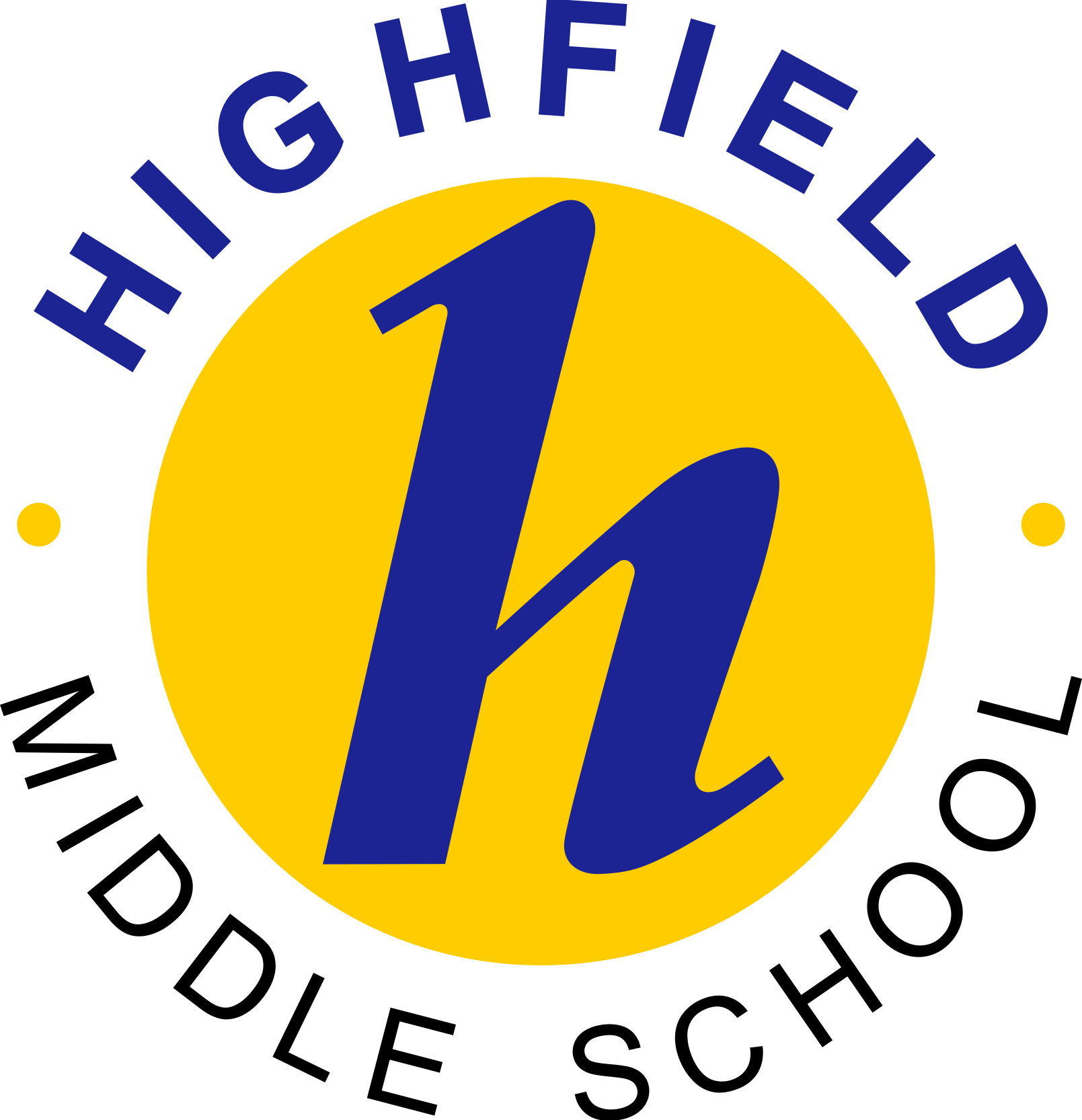Geography
At Highfield we believe our curriculum should inspire curiosity and fascination about the world and its people and provoke and provide answers to questions about the natural aspects of the world around us. We should equip pupils with knowledge about diverse places, people, resources and environments. As the curriculum progresses pupils will develop a knowledge of the world which will deepen their understanding of the interaction between human and physical processes, and of the formation and use of varied landscapes. Our curriculum aims to develop analytical and critical thinking and interpretation skills through a range of enquiries which require problem solving and decision making. This will enable pupils to truly understand who they are, their place in the world, their heritage and appreciate a wide and rich cultural diversity. We want our pupils to be socially responsible, global citizens.
We have a broad and rich curriculum that incorporates a wide range of geographical skills and knowledge. Children will deepen their locational knowledge of areas using a range of maps at different scales. They will look for geographical similarities and contrasts by studying a variety of regions looking at the human and physical geography of areas. At Highfield we develop an understanding of physical geography relating to geological timescales, plate tectonics, weather and climate amongst others. Human processes such as urbanisation, international development and trade as well as economic activity in the developing and developed world are studied through a range of case studies and current affairs. The curriculum has been developed in line with other subjects so that relevant topics are linked and interwoven, allowing the children to build on their prior knowledge and skills ensuring that there is a fluidity and natural feel to a child’s progression.
In Key Stage 2, the curriculum is taught through a topic based approach for each term, where individual geographical skills, such as collecting data, and analysing and drawing conclusions, are built into individual lessons but with an overarching theme. This has been carefully planned and is inline with what the children have learnt at Key Stage 1 and 2 previously, allowing them to expand upon and build on prior knowledge quickly.
In Key Stage 3 our pupils receive 3 lessons per week which is rotated on a half-termly basis with History. The curriculum has been carefully sequenced to link with prior learning at Key Stage 2 and help our children be ready and able geographers for when they move to High School. Disciplinary concepts such as the environment and sustainability, relationships and interdependence and culture and diversity are explored and expanded upon via a range of geographical techniques. Academic skills are built up and expanded, with children encouraged to use field work skills to investigate, whilst drawing up evidence based conclusions. We believe that when children leave Highfield, they should be ‘cartographically literate’ and have all the transferable skills and knowledge ready to further their own education.
History
At Highfield, we want to develop curious, independent and resilient learners who understand the importance and relevance of history in their lives as global citizens and members of the local community. We firmly believe History is a subject for all students and we want to inspire pupils’ curiosity to know more about the past. The students at Highfield will undertake a range of learning activities that are designed to enable them to develop critical thinking skills, giving them the ability to weigh up a range of historical evidence and sources and make informed judgements and/or decisions. Effective communication both orally and written will be developed as an integral part of the curriculum e.g. the importance of structure, spelling, punctuation, grammar, key words and academic language when constructing statements, narratives and debates.
We endeavour to equip our students with an understanding of historical events that can inspire and stimulate. The skills and knowledge learnt can be applied and transferred to other areas of the curriculum and to a pupil’s wider understanding of their role in society. Within our curriculum will be a focus on diversity and the relationships between different cultures and groups, looking at the challenges and obstacles that people face. There is also an emphasis on historical concepts such as continuity and change, as well as the cause and consequence of events. Our students are encouraged to look for and identify connections, similarities and contrasts between historically significant events. Topics and ideas have been carefully sequenced across Humanities as a whole, to ensure that our students have a good understanding of terms such as empire and civilisation.
In Key Stage 2 History at HMS, students will have one lesson of History per week and will look to build on their previous knowledge, developing their historical skills further. They will continue to develop a chronologically secure knowledge and understanding of British, local and world history. We work hard to establish clear narratives within and across the periods that the children study. Students will note connections, contrasts and trends over time and develop the appropriate use of historical terms. Our curriculum allows the children to learn and develop this specific vocabulary which is used to strengthen and deepen any verbal or written responses.
In Key Stage 3 our curriculum is designed chronologically from 1066 Britain up until the modern day. Links are made to previous learning, where overall themes such as empiricism, monarchy and revolution are revisited and developed. Children will gain a greater depth of knowledge in important historical events and will be able to identify the wider contextual significance. Throughout our Humanities curriculum will be links to substantive concepts such as migration, power, civilisation and progress. These are carefully sequenced and revisited to ensure that when pupils leave Highfield, they have gained an invaluable understanding of History and how it can relate to their place in the world.
History and Geography Curriculum Overview

